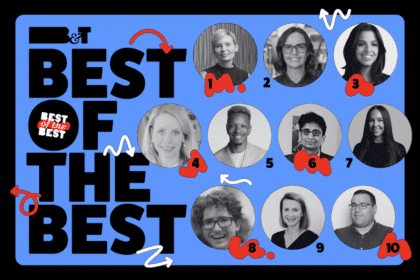Can’t figure out how to handle the scores of Gen Y staffers in the media and advertising biz? OMD’s Stuart Bailey tells you how its done.
How many of us have said or heard someone say with an exasperated and frustrated tone “Bloody Gen Y…”
In some work places it’s something that is said constantly and advertising (being largely made up of Gen Y) is no exception.
So why does the so called generation X manager have such an issue managing generation Y?
There are obviously multiple factors for this and in my opinion there is one rule for effectively managing Gen Y.
Before we get into that we should clear up a misconception. Gen Y as a pejorative term is greatly over and incorrectly used. It has become a stock response to a plethora of issues that have nothing to do with Gen Y.
As an example it may be that your 23 year old employee is always late, has a bad attitude, expects special treatment and doesn’t do their job and yet is still busting your door down for a rise or promotion.
This has nothing to do with Gen Y but is rather a reflection on that individual. Those people existed before Gen Y and they will certainly be around when Gen Z start making up more of the workforce.
That being said there are some very specific differences between Gen X and Gen Y that does impact on how we view the world.
I think you can pretty much assign most of this under one heading: technology and the internet.
Gen X did not grow up with technology and the Internet in the same way as Gen Y. The world was a much smaller place when we grew up and our parents, our social setting and our experiences moulded us (typical nature versus nurture stuff that has been going on for generations).
We travelled, we used “traditional” media channels to find out what was happening in the world, we read books/encyclopaedias and we communicated with our family and social network and through this we formed opinions and beliefs.
Gen Y, on the other hand, had their formative years moulded by the same things, just magnified on a massive scale.
For instance my social setting until I was 18 and went to university was pretty much a small county on the outskirts of London. My friends lived within 30 minutes of me and although I had travelled my world was pretty small.
Someone who has grown up with the internet from a young age can boast a much wider social circle and a huge amount of information at their fingertips. Distances, language barriers and cultural divides don’t mean the same thing when you have chat rooms, blogs, Google translate, social networks etc. As such, Gen Y has a very different outlook and perspective.
Access to the internet at a young age and massive evolutions of technology has also made Gen Y much more equipped to understand the digital world we now live in.
Things that seem alien to Gen X come very naturally to Gen Y because they have always done things this way. It’s the norm.
One of the other key factors for why Gen X struggles to manage Gen Y is simply down to the fact that they measure them to their own standards.
We have already mentioned that both generations had different stimulus while growing up so why on earth should someone from Gen X think that Gen Y would have the same criteria on which to measure themselves?
This doesn’t mean that they shouldn’t do the job they are hired to do. Gen Y can’t just decide that an integral part of their role is boring so they don’t want to do it. That being said they may not want a linear path of progression for instance. Just because you did that role 10 years ago doesn’t mean they want to follow the same progression as you.
So we’ve established that the generations have their differences but what is the number one rule for managing Gen Y?
It comes down to one thing that is true across all generations; understand what motivates them.
If you understand this then you will be in a position to understand how you can get the best out of them.
The three basic tenants of good management (feedback, recognition/praise and reward) are still key but if you don’t know what motivates them how do you know how to reward them? What praise will mean the most to them? And how and when you feedback to them can often be key?
Lastly and just as a test think about what you were like 10 or 20 years ago. Then think about what it would be like to manage that version of yourself.
Some of you may think it would be a breeze and that you haven’t changed a bit. I would think most of us would probably stop and upon reflection realise that we have changed in that time, we want different things or at least different things are a priority to us now versus then.
So if managing yourself 10 or 20 years ago would present these sort of challenges and barriers why shouldn’t this be amplified when you take on board the culture gap between Gen X and Gen Y?








